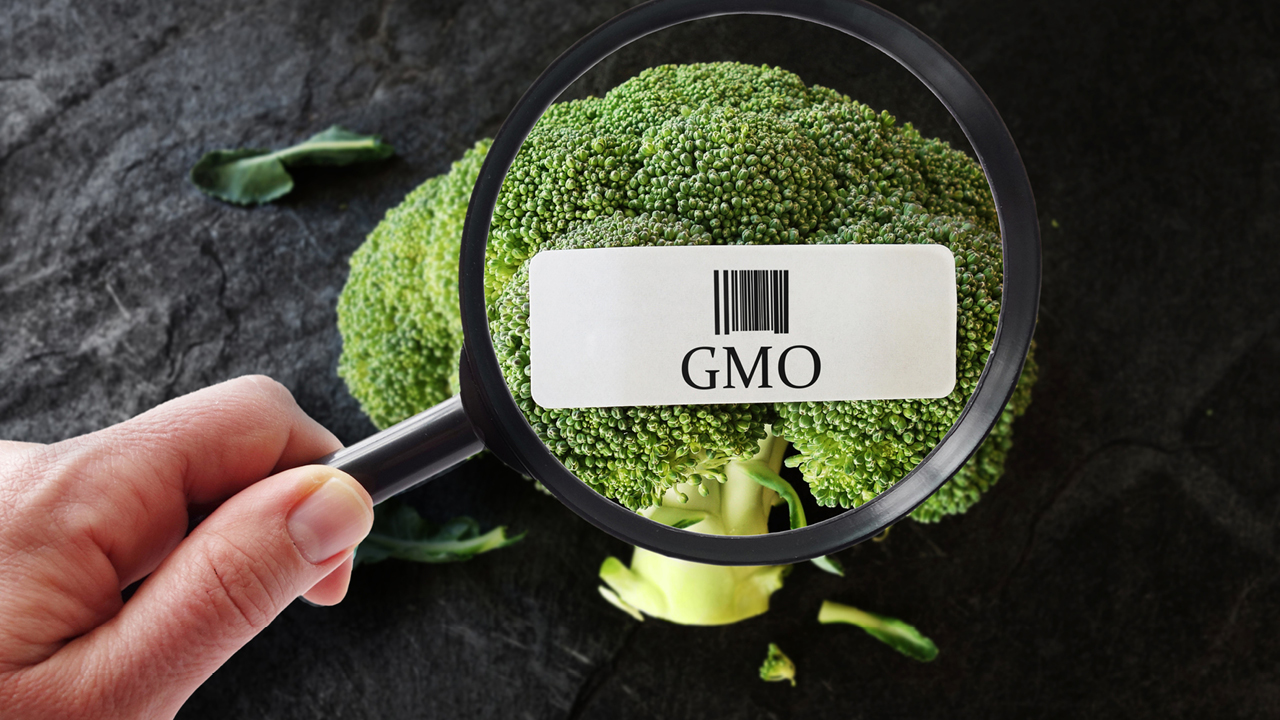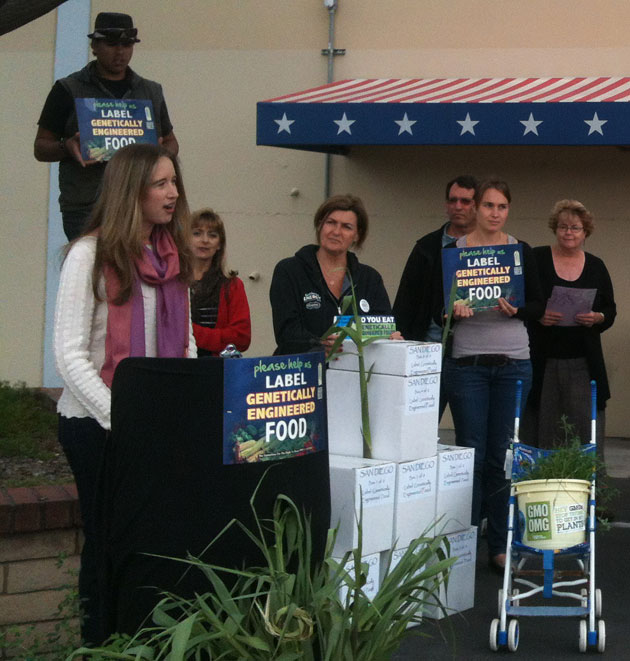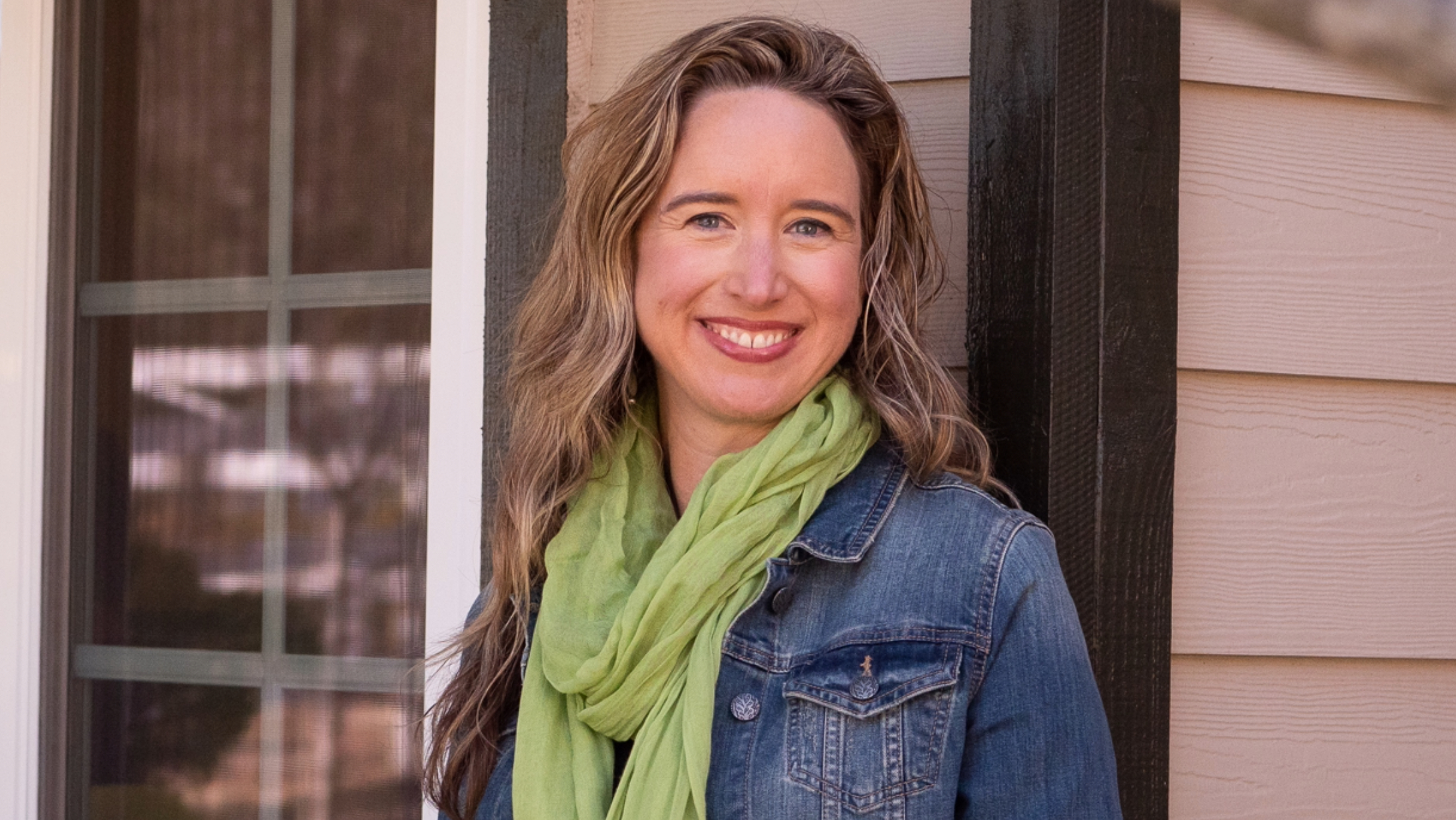
There is an elephant in the room, or at least in the kitchen, related to this whole business of cleaning up our lifestyles: food. All this time, I’ve discussed what goes on our bodies or what’s around our bodies. But chances are, we spend a whole lot more time putting stuff in our bodies. I am not going to turn this into a cooking blog (although I do enjoy cooking. And eating). I only plan to touch on the topics that relate to safety and health and general well-being.
GMOs, to begin with
Genetically modified organisms, or GMOs, are getting a lot of press these days. For a quick overview, GMOs are foods that have been altered at the genetic level. Beyond a mere cross-breeding, or hybridization, these foods have had new material inserted into their genetic code. This material may come from other plant or animal species, or it may come from synthetic sources. Proponents of GMO’s advocate that this science can increase food supply and diminish famine around the world. However, the practice of genetic modification has focused mostly on creating new crops that are resistant to herbicides, like Round Up, thus enabling growers to expose their crops to increasingly intense amounts of the chemicals. Other issues have arisen when genetic code from an allergen have been inserted into previously harmless foods, such as jellyfish genes inserted into tomatoes. Suddenly, people with fish allergies are allergic to tomatoes. (This one was done to increase the cold tolerance in tomatoes.)
This is not a futuristic science. It’s already out there. Nearly 90% of domestically grown conventional corn, soybean, and canola are already genetically modified. Over 80% of prepackaged foods contain GMO’s. Did you know this? Only if you have gone out of your way to find out.
So what’s the big deal
There are many different arguments against consuming genetically modified foods. However, topping my list is the unknown aspect. There have been no long term studies on humans of the impact of consuming GMO’s. The studies done on animals have had mixed and disturbing results.
Currently in California, the Right to Know campaign has submitted a petition with over 971,000 signatures requesting labeling on genetically modified food. Take note, that this campaign is only addressing the issue of labeling the foods. It is not taking on the existence of such foods. On the day these signatures were submitted, I spoke to supporters and the press regarding this issue. Here’s what I said:
- Full disclosure. Honesty. Truthfulness. In my house, we teach that decisions must be based on facts, and that above all else, we must be honest and true. The issue of labeling genetically modified foods is fundamentally about full disclosure. It’s about honesty. And it’s about truthfulness. We teach our children that to know, is better than not to know. That bringing truth to light is better than keeping facts in the darkness. Let’s show them that as adults, we practice what we teach.
- I have three children. No one cares more about the well-being of my children than my husband and I do, as is the case with every mom and dad here today. It is part of our job to protect them and strengthen them as they grow. But we need the tools in order to do this, and in this case, the tool is information. We need to know exactly what they are eating. Labeling genetically modified food gives us more of this information. No corporation, no governmental program, no scientist or laboratory can replace the judgment of a parent. By hiding this information, they are keeping us from doing our jobs well. And ultimately, raising our kids is not their job. It is my job and it’s your job. They don’t have the time or wherewithal to do this job. So let’s just take that off their plate. Let us have the information we need to do our job. Label genetically modified foods.
- I refuse to let myself or my children be someone’s science experiment. There has been no long term testing on humans regarding the effects of consuming genetically modified food. The idea that my beautiful daughter is actually their lab rat really bothers me. Ten years down the road will we discover that her kidneys malfunction and all causes point to the consumption of genetically modified foods? Maybe. And what would be said then? “Whoops! We didn’t know. Here’s your money back.” It is irresponsible, it is juvenile, and it is immoral to subject people unknowingly to untested scientific research.
- America is founded on the premise that every individual is capable of having his or her own voice, and making his or her own choice. It is also fundamental that every person have access to the information they need in order to make informed and sound choices. Producers of genetically modified foods claim that this information is irrelevant, that it doesn’t matter whether or not the food we eat is genetically modified. However, that is not their choice to make. We decided long ago that we don’t need Big Brother making our choices. We have the right to know, so that we can choose for ourselves.
- Forty other countries around the world already have claimed this right for their citizens. Forty other countries, including China, Japan, and every country in the European Union, already have labeling on genetically modified foods. Shouldn’t we?
- The next time our kids ask us, “What’s for dinner?” let’s have an answer for them. Furthermore, let’s give our kids an excellent example. Let’s show them what it means to care about truth, to seek out knowledge, to take a stand for a fundamental American right. Just label genetically modified food.
To learn more
California “Right to Know” campaign: www.CARightToKnow.org
“Just Label It” campaign: www.JustLabelIt.org
These two sites will give you a great overview, as well as giving you the opportunity to join in the call for labeling.
Non GMO Project: www.NonGMOProject.org
This project verifies food suppliers whose sources are free of GMO’s. It contains a good shopping guide, as well.
As always, please ask me if you have any questions about the issue.




Just read your post – I know it is an older one but one that still resonates with me. I was raised on a farm (I’m 67 now) and we raised our own fruits, vegetables and meats. The only things Mom bought were coffee, sugar, flour and that sort of thing that we couldn’t grow ourselves. It is still very much on my mind to follow in my younger footsteps (foodsteps??)!
I have written to my congress men/women to fully support GMO labeling. My budget doesn’t always allow me to purchase organic, non-gmo products but I do as much as the $$ allow. I also purchase locally at my Farmer’s Market and independent farmers when possible.
I have 4 grandchildren and I want them to grow up healthy and happy without worrying about what possibly will go wrong with their bodies as they grow older.
Hi Lea- An old post, but still very relevant. All this is so important and the steps you are taking make a difference. If these steps became the norm, we would see a great difference in how we farm, the well being of people and animals, and regeneration of the planet itself. Small steps add up.
[…] my earlier posts on this topic, check out Let’s Talk Lunch – An Intro to Genetically Modified Food and Yes on Prop 37 – Label Genetically Modified […]
Thank you for speaking out and clarifying matters in a way most of us can understand them. I’ve lost a lot of trust in manufactured goods, and I’m not talking about imported foods from 3rd world countries, I’m talking about foods grown for human, (and animal, who are then processed for human) consumption. I sometimes feel like an uninformed, uncompensated* participant in a government-sanctioned experiment on the effects of a steady diet of GMO food products in our populace. I find it infuriating, and try to limit my family’s intake of GMOs, but find it almost impossible to do so, especially when I consider the amount of wheat and corn (and their byproducts, such as high-fructose corn syrup, etc.) in our current food supply. Growing our vegetables helps, but only fractionally-who nowadays can truly provide their entire food supply? Thank you, Lisa, for being part of the growing number of mothers demanding accountability from those who market the foods available to us. You have my admiration and support. Let’s join the EU in demanding truth in labelling, which is the first step in eradicating GMOs in our food supply.
I’m glad we’re on the same page!
-Lisa
Lisa I just read a few days ago that the AMA wants to label GMOs I just wrote a comment on the Dr Mercola web about it. It was all a buzz on the Federal Agencies a few weeks ago so something must be happining. I really think its a behind the scene government/corperation move so the moneybomb won t ever get on the ballot. I m always think about the conspercy side of things, should we always have to wonder whats really going on. People business are usually aways one step ahead putting 2 and 2 together. Well you really have a great product that I use everyday The Pepermint Liquid.
Hi Lisa,
Fantastic post and so important for all of us to share and fully understand the implications of GMO’s. I own a health food store in Abingdon, VA (and we carry ALL of the Dr. Bronner line–and have since we opened in 1985!) and we are asked often about GMO ingredients–more recently the issue with the well known “natural company”, Kashi. We decided to stop carrying their brand until they cold confirm they are no longer using GMO soy in their products.
If more people stand up to GMO food and refuse to buy it where it IS discovered that will also help spread the word. I think the GMO issue today is the most important food safety discussion we can engage in.
Thank you for continuing the dialogue and for the trust and purity of the Dr. Bronner products. I use them every day and wouldn’t be without it!
All One, All One!
Sean
PS Does Ralph still make appearances around the country sharing Dr. Bronner stories? Would love to find a way to invite him to our town!
Any modification of genetic material makes me nervous. I remember hanging on to something Barbara Kingsolver wrote in her wonderful book of essays entitled, Small Wonders, that really resonated: ” Genetic diversity, in domestic populations as well as wild ones, is nature’s sole insurance policy. Environments change: Wet years, are followed by droughts, lakes dry up, volcanoes rumble, ice ages dawn. It’s a big bad world out there for a little strand of DNA. But a population will persist over time if, deep within the scattered genetics of its ranks, it is literally prepared for anything. When the windy years persist for a decade, the wheat population will be overtaken by a preponderance of shortness, but if the crop maintains its diversify, there will always be recessive aspirations for height hiding in there somewhere waiting to have their day.” I recently read about the decimation of our honeybee population which is suffering from sipping on toxic flowers from toxic seeds; toxic due to genetic fussing around. This will come back to haunt us. I was inspired to write this poem.
Stinger
Honey bees
Bear no ill will
Nature’s calling
Sip and fill
Toxic pleasure
Born from seed
Poisons nectar
And impedes
Pollination
Factories
No more
Flowers
No more
Seeds
Gone
The
Wing
Of a
Buzz
On a
Breeze
No more honey
Hi Laurel – Beautiful! I’m so glad you shared this. I too am a friend of the bees. Not that I’m thrilled when my kids get stung, but bees are so very crucial for the success of our gardens and the viability of our food supply.
Hi Sean – This is a very consumer driven issue. Sitting back and waiting for legislators to initiate or follow through on this topic is pretty pointless. The more we can educated consumers about what’s going on, the faster changes will happen in the supply chain. I would expect that companies that have touted themselves as natural, once they get called to the carpet regarding GMO’s, will seek GMO-free ingredients.
Unfortunately, my Uncle Ralph is not physically able to go on his beloved “soap trips” anymore. They certainly have been the highlights of his retirement, though. He’d fill his minivan with cases of soap, pick a city, and visit every mom&pop health store in it. Then, he’d find the daycares and inner-city schools, march in with his guitar, and somehow sweet-talk the administrators into letting him conduct a sing-a-long. Or he’d find the local independent theater, and stage his one man Dr. Bronner show. He’d ask audience members to pick a number, which would correspond to a particular story about the family or the company. That’s what would determine which stories he would share. There aren’t many individuals like him.
I love hearing anecdotes from people who have met Ralph. Are there any readers who can share one?
All the best,
Lisa
Lisa,
First of all, I have to tell you that your grandfather would be so proud of you! As a grandmother, I hope my grandkids act as an advocate, as you are, to help keep others healthy! Great blog with so much helpful information.
In 1996, our family became ill after breathing in fumes from a fuel oil spill (unknowingly under our home). We became so sensitive to chemicals in general. We were no longer able to tolerate every day cleaning products available on the market. Your grandfather was way ahead of his time with his soap. I found it available at our local health food store back then and have been using it ever since.
So happy to learn more about the company he started. I watched the movie and I am so glad to know I am supporting a worthwhile company.
Hi Kelly – I love hearing stories like yours. It’s a connection between us and so many people who knew my grandfather, or knew of him.
All the best,
Lisa
Thank you, Robert!
Hi Alisha – As you know, there is no substitute for reading ingredients. If a conventional product contains certain ingredients such as corn, soy, canola, sugar beets, and wheat, chances are very high that there is genetic modification involved. However, the USDA organic seal includes verification that the product contains no GMO ingredients. So, if that seal is on there, then it’s the same as saying “non-GMO”. When you’re shopping with an allergy in mind, the safest bet is, as you say, to go with organic or “non-GMO Project verified”. Even if a product were to say “non-GMO”, but not be verified by an independent organization, like the Non-GMO Project, then that still is a little suspect as well.
“Organic” certainly has its limitations. Sometimes the most junk food my kids have is at the trade shows where they have organic soda and organic chocolate and organic ice cream and organic potato chips and organic chicken nuggets … 🙂
All the best,
Lisa
It is my understanding that unless a product says non-gmo, then you can assume it is in fact genectically modified whether it is organic or not. Organic doesn’t mean necessarily a more nutritious product, it simply means “grown without pesticides”. Now obviously it is not healthy to eat food that contain pesticides. But sugar whether organic or not is still sugar. For instance, most corn is genectically modified which gives my children eczema. So I do not buy a corn product unless it says organic and non-gmo. I do not buy Meijer brand Organic corn tortilla chips because they do not say “non-gmo”. It’s strange to me how such a big deal is made about corn being gmo or non-gmo when nothing is said at all about wheat when ALL wheat is very GMO, hense all the celiac and gluten intolerance around. The Bible mentions people eating wheat and barley and it was healthy back then, but not today with all the human altering that has occurred. It’s really too bad!
Organic Meijer tortilla chips are gmo free and organic by usda standards cannot contain Genetically Modified Organisms. I’m completing my doctorate of pharmacy seminar on Gmo foods and metabolic activity.
Thanks for this.. I have been using Bronners since I was a little kid. I am so glad to have been exposed and to see how the values your family and Company create affect the world.
This kind of extra work you are doing, besides just making nice soaps is so great. Thanks so much.
I’m confused a little. I realize the importance of labeling GM foods, but couldn’t we just look for foods that have an Organic label? Aren’t those foods non-GM? What’s the difference?
Hi Kristina – Great question! Yes, organically certified food, per USDA organic standards, are free of GMO’s. However, this ballot measure is not about stating what is free of GMO’s, but rather about stating what contains GMO’s. The idea is that the presence of GMO’s is important enough that all consumers should be clearly informed that they are there, without needing a shopping guide or prior research. The measure is similar to the efforts that were made to label foods that contain transfats.
Organically certified foods are really the gold standard, free not only of GMO’s, but also pesticides, petrochemicals, synthetic fertilizers and all sort of other goodies. However, there are plenty of non-organic foods that are free of GMO’s. At the moment, GMO’s are found in processed or pre-packaged foods. They are also used for animal feed. They are not in the produce section and they are not in meats. But not for long. A super-hot controversy at the moment is the push to approve a genetically engineered salmon for human consumption. (Here’s a link to info on that topic: http://www.npr.org/2011/12/09/143453487/debating-genetically-modified-salmon). Also in the gates is a genetically engineered corn that will be sold fresh, on the ear. Hopefully, by the time it hits the market, there will also be a law, at least in California, that gives this corn a GMO label. So, there will be three divisions in the produce section: organic, non-organic and not genetically modified, and then genetically modified. No doubt, the GMO food will be less expensive, and without the scientific research one way or another on its long term impact, the label may be a non-issue for some consumers. However, they at least will be making an informed choice.
Hope that helps! There is so much info on this topic and so much to say. I don’t want to swamp anyone with too much, so I’m kind of holding back. However, please continue to ask about any aspect of it.
All the best,
Lisa